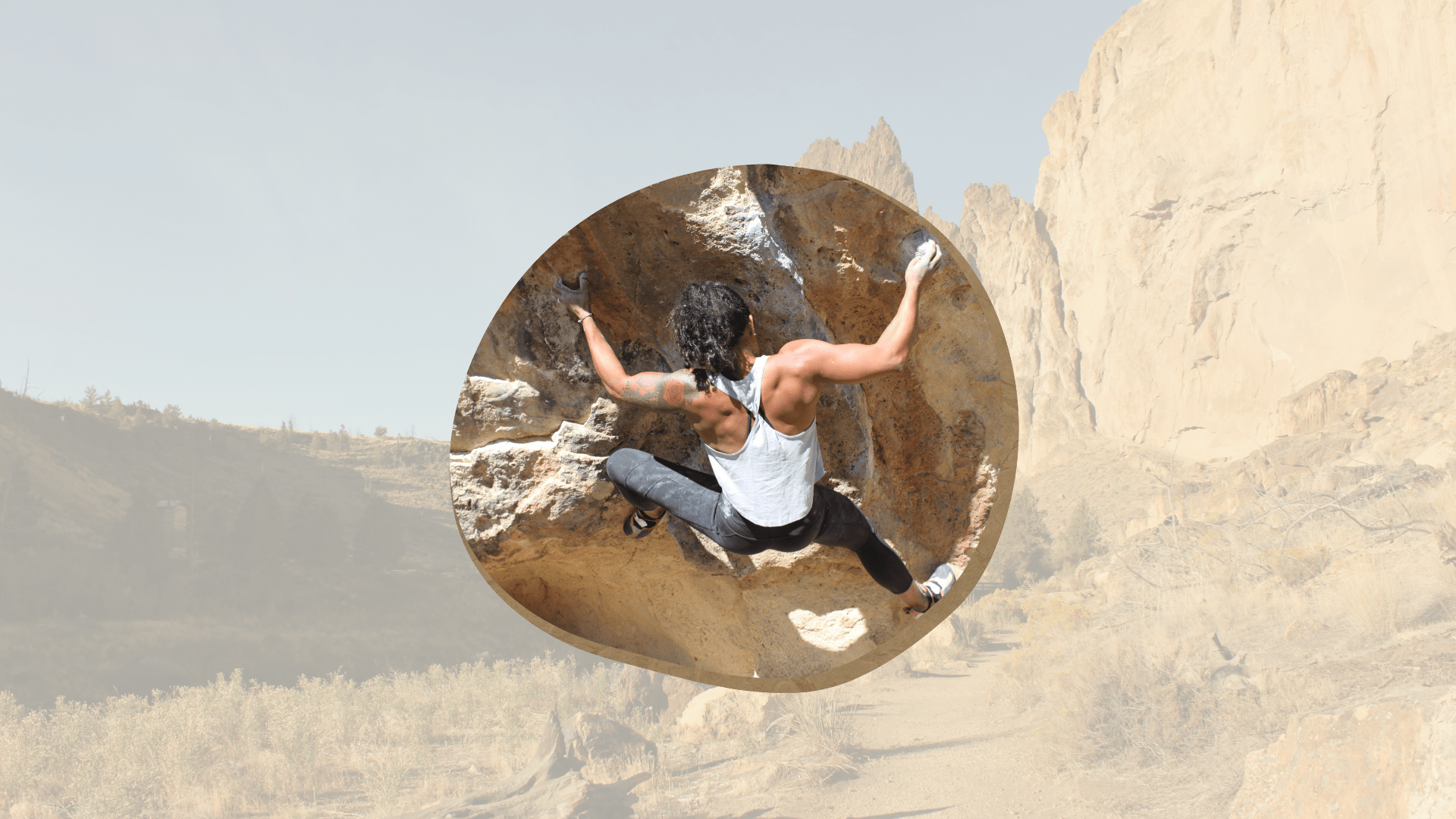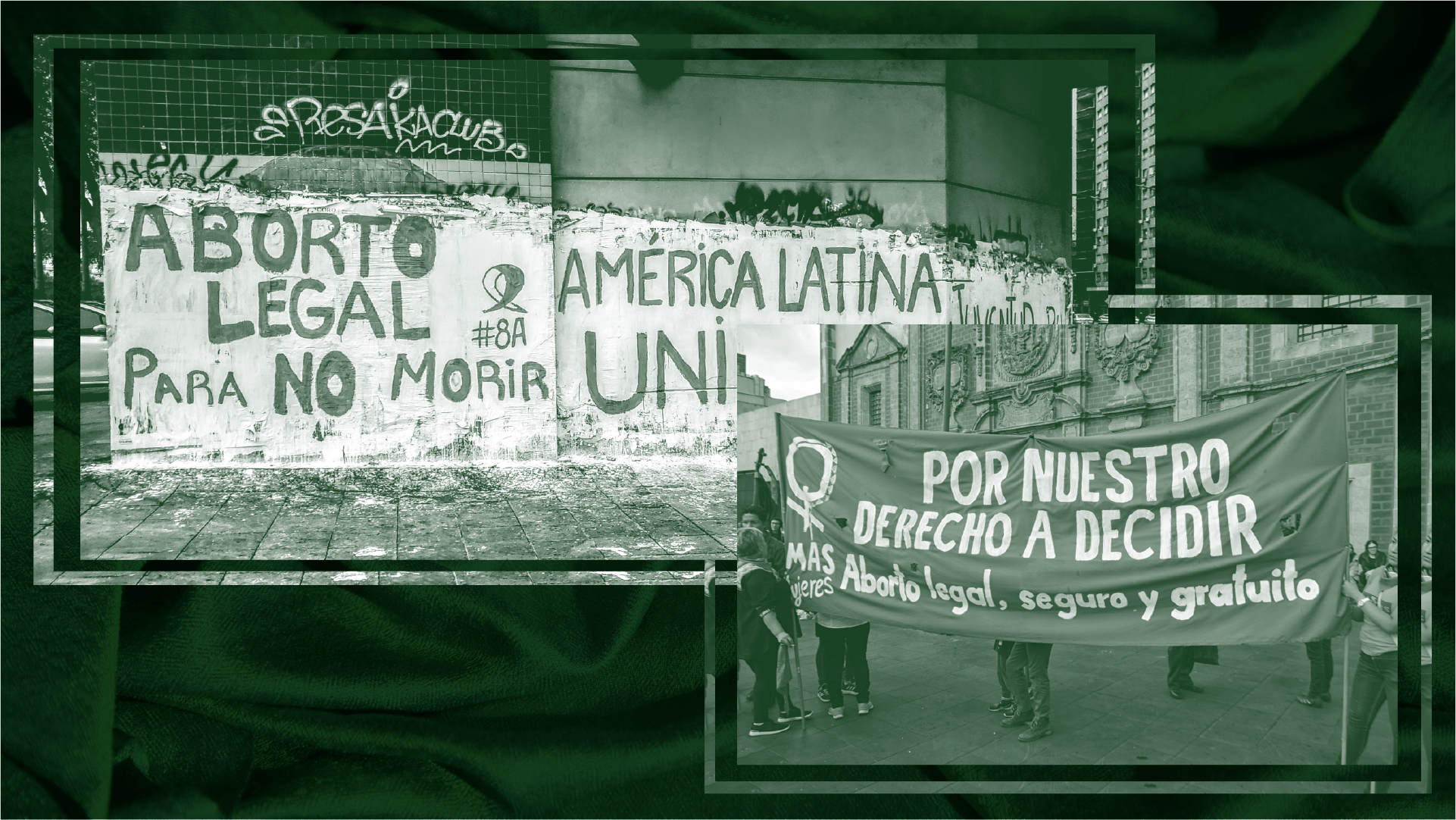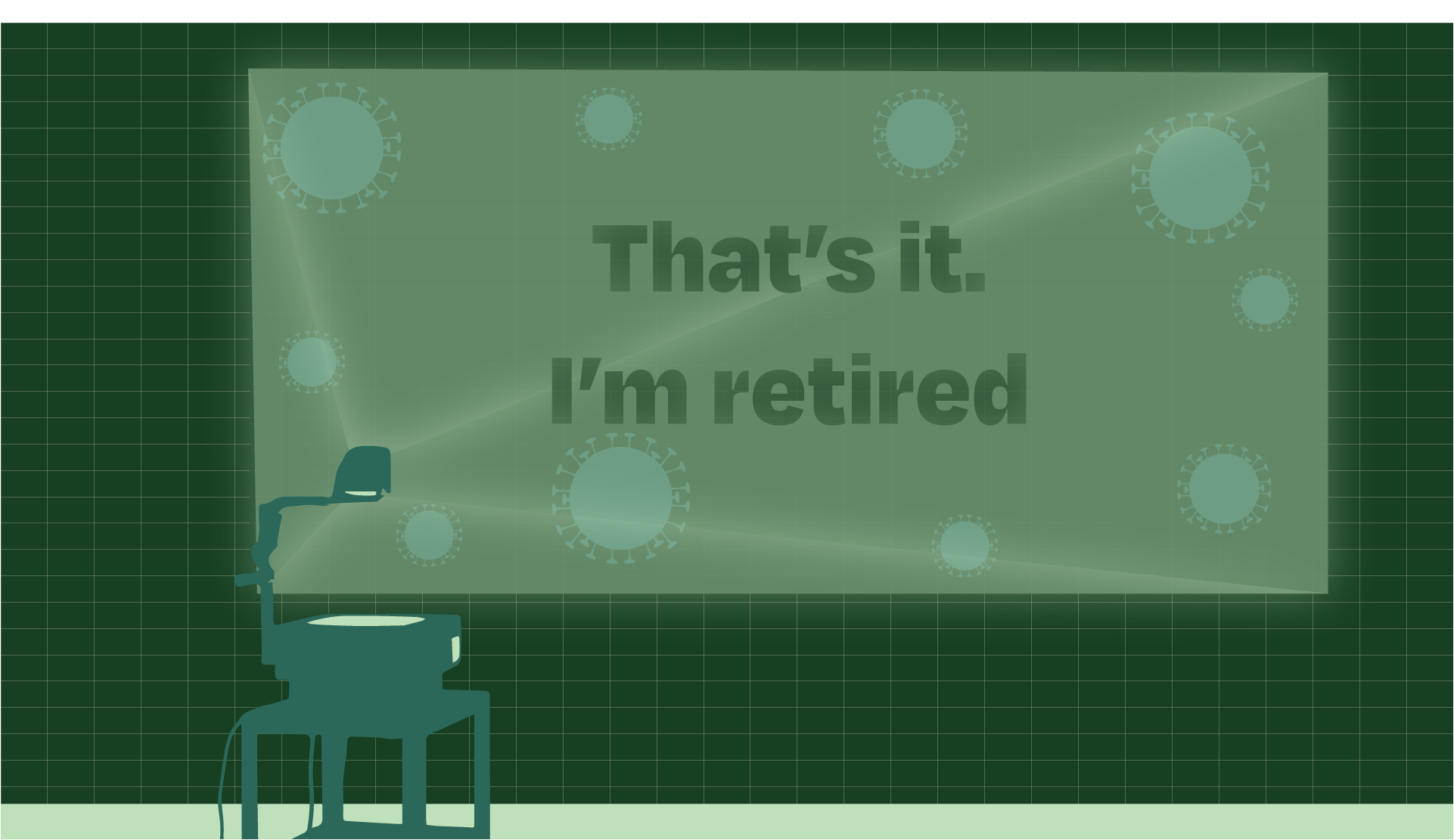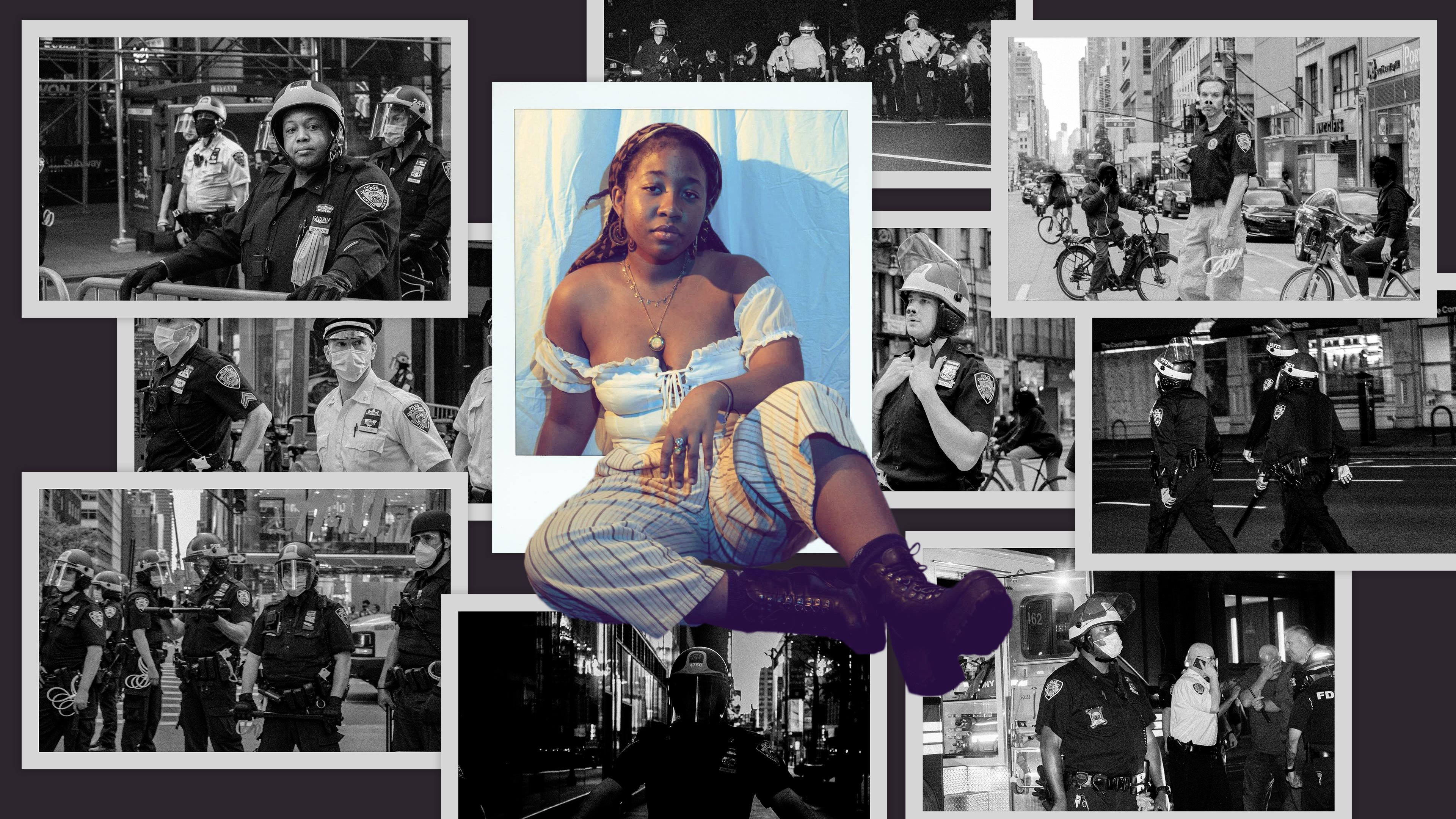
How Photographer Fatima Julien Flips the Script by Taking Photos of Police
In “Portrait of Pigs,” artist Fatima Julien aims her camera at cops instead of protesters.
After a trip from Cuba when she was a college freshman, Fatima Julien traded her dad a box of cigars for her first camera: a Canon Rebel T6. She said he may have realized it was an unfair bargain later on but that she’d never return the camera.
“I don’t know how that worked out, it was the best gamble of my life,” said Julien, 21. “So I just randomly started taking pictures because I got a camera. It was great. I still take pictures on that same camera.”
Julien’s art is not just limited to photography — she is also a filmmaker and writer who hopes to create a platform for Caribbean storytellers in the future. Her latest project, Portrait of Pigs, documents the police that lined the New York streets during the recent wave of Black Lives Matter protests that have been sweeping the nation. Julien, who was born and raised in Haiti, spent pockets of time in the United States as a child, where she was introduced to the idea of police presence in everyday life.
“My aunt used to scare us into being good kids by telling us about po-pos, so I had made them to be these monsters in my head,” she said. “So the first time I got pulled over by a cop, I literally started bawling my eyes out, and he was not very nice about it.”
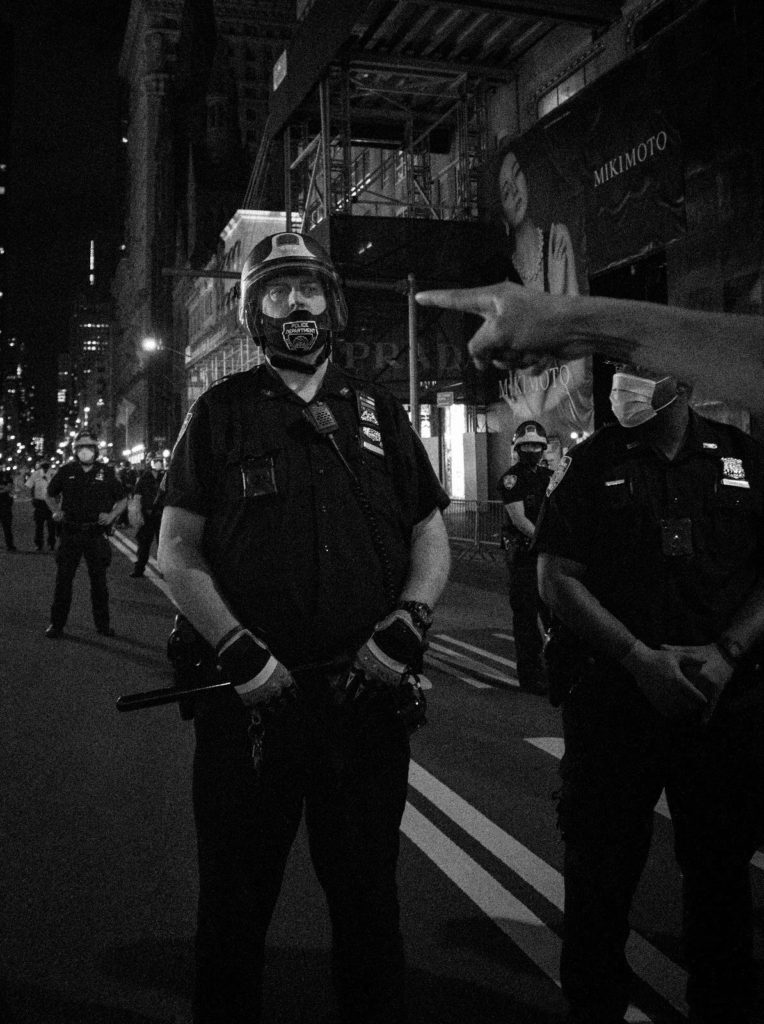
Photo by Fatima Julien.
She graduated from New York University in the spring with an Individualized Degree in Media Studies and International Law, where she studied how media portrayals of race impact international relations and laws. The black and white photo series evokes the emotional turmoil that has existed between Black communities and the police since before the abolition of slavery. By making her subject the police instead of protesters, Julien sees Portraits of Pigs as a way to invert the power dynamics of surveillance that often play out in protest photography.
The Interlude spoke with Julien via Zoom recently about her project and how it was therapeutic for her as a photographer concerned with media ethics and the safety of Black protesters in the age of Black Lives Matter. The following interview has been condensed for clarity.
How did you come up with the Portraits of Pigs photo series?
I am on the shyer end of things. I feel like a lot of photographers can just go out and take pictures of people, but it stresses me out to do that because I don’t know if this person wants me to take their picture, especially if that person looks at me, then I’m like, “Is that okay?” It’s very awkward for me doing protest photography. In a way, it helps for me to get out of my comfort zone and forces me to talk to people and interact with people. But with something as sensitive as the protests for Black Lives Matter, I knew that there were so many emotions there and I just didn’t feel right taking away somebody’s agency like that or getting in somebody’s face with a camera and taking their picture, like it just felt awkward, and wrong, and difficult. So then the easiest thing for me to do is to take pictures of the cops.
In previous protests, cops had used [protest] photographs to track down protesters and leaders in the Black Lives Matter movement and try to harm them, that pissed me off. So I was like, you know what, how about I flip the script in a way? And as opposed to taking people’s pictures I could take the cops’ pictures, that way I’m not taking away somebody’s agency, I am taking away [the cops’] agency. In so many instances it’s been the opposite, with cops taking away the agencies of Black people. I’m angry. They’ve taken so much from people that look like me. They’ve taken so much from me, so I just wanted to do something that shows that. Photography is a very weird art form because of the different power dynamics that come with it.
Was there any specific intention behind making every photograph black and white?
Black and white photography is just the way I shoot. I think shooting with color is beautiful, I just personally don’t enjoy it. There’s a truth to black and white photography that I haven’t been able to find with color photography in terms of my own personal work. It forces you to focus on the subject. I like the directness.
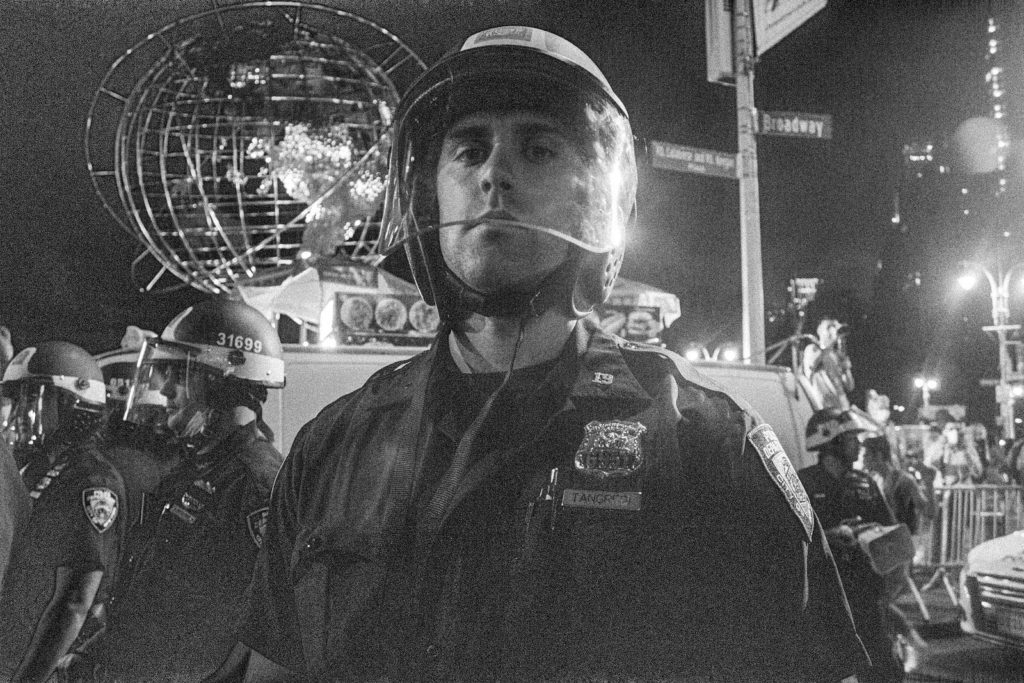
Photo by Fatima Julien.
Is there a future for this photo series?
I have so many more [photos] but I was like, I’m tired of spamming Instagram. It felt weird posting them all with everything going on. I didn’t want it to become about me, per se, because I found myself refreshing, checking to see how many likes they got. I think for now I am not going to post my pictures, but instead I will repost the pictures, for example, of the cops who murdered Breonna Taylor. I think the whole point is, as opposed to having Black people’s faces splattered everywhere potentially putting us in danger, I rather it be the other way around, like we splatter their faces around, and we show who the bad guys are. A lot of times history forgets to immortalize the bad guys. We do immortalize the good guys but that also places us in a spot of vulnerability.
Why did you start creating art?
I think photography, specifically, it was mostly anxiety. Because my anxiety is so crazy, it’s all about figuring out ways to have control over my environment, that way I don’t feel like I am going insane all the time. So basically my photography was a way to kinda like take a picture, and then spending time and editing it. It was a way of calming down. It was soothing. It was more like me having agency over the things around me as opposed to the things around me having agency over me. I started taking pictures because of that.
How would you describe your artistic process?
So many accidents. I have an ongoing text message chain with myself where I will just wake up in the middle of the night and be like, “Oh, this is an idea I have,” like a movie idea or something that I want to write and I will just text it to myself. They’ll come to me in dreams. A lot of my academic pursuits also informed what I want to be doing. For my thesis, I was writing about Haitian Loas and Haitian Spirits and just how Haitian Voodoo worked. And a lot of my subsequent ideas in filmmaking and so on were informed by that. I do want it to be a bit more intentional I think. That is what I tried to focus on with the series Portraits of Pigs, I was trying to make it as intentional as possible.
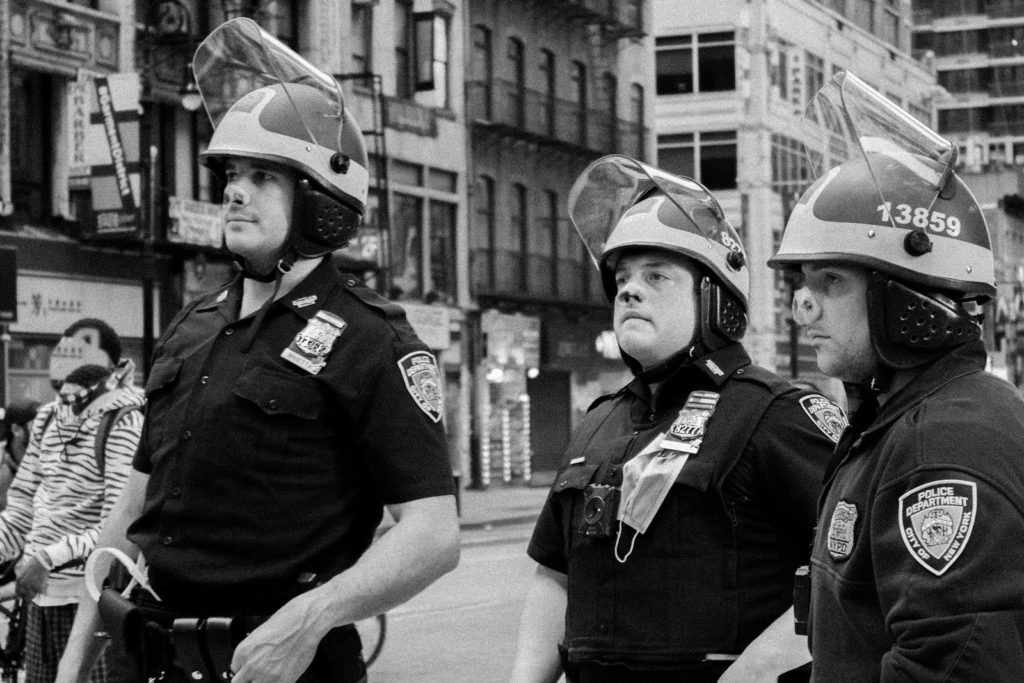
Photo by Fatima Julien.
What role does art play in the revolution?
If we consider writing and all that other stuff art, like a lot of that has historically been written by white people. It has been written about us. It has been written about the oppressed. Pictures have been drawn of the oppressed. The Hatian Revolution, I think a lot of the paintings we have of it were drawn or painted by white people, which is mad weird because this was one of the instances where we were the victors, and that’s something that I never could wrap my head around. In terms of having agency over yourself, having agency over your body which is a very big part of the revolution; art plays a huge role in that sense.
We have to create our own narratives and we have to rebel against the narratives that were written for us. If everything is as a result of narrative, then we have to be able to take those narratives back and change them, or reimagine them in order for us to be able to move forward. With everyone being like, ‘But what are we going to do in the future? What’s going to happen when we do abolish the police?” You can’t necessarily imagine another world if you’re still stuck in it. So we need people that are actively re-imagining worlds. We need people that are actively working on destroying this world with their art. We need people that are actively contributing to alternate narratives as opposed to focusing on whatever [narratives] have been circulating now for centuries.
